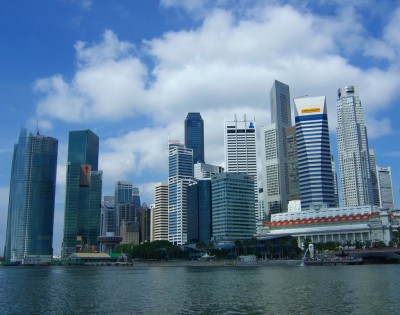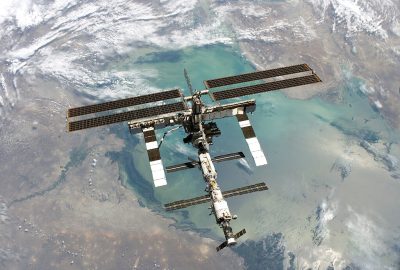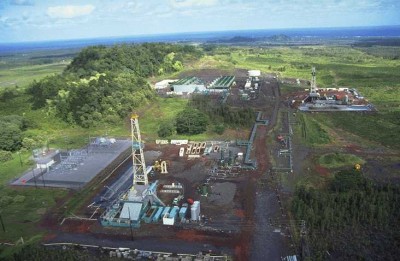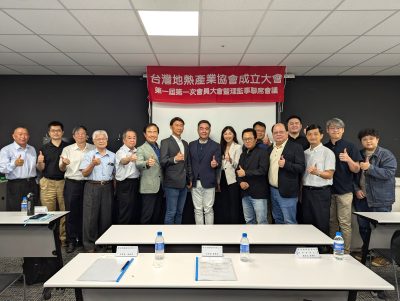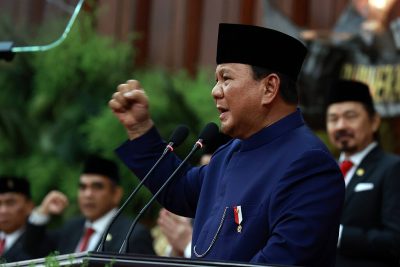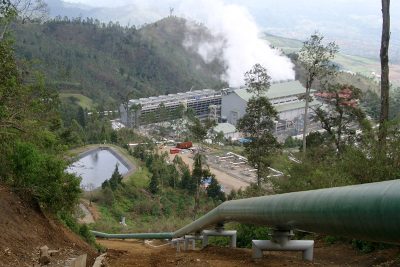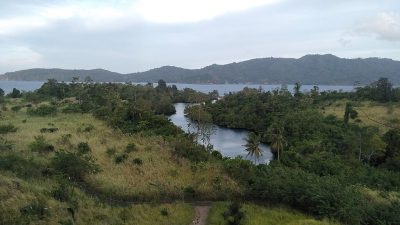Pioneering geothermal use for coffee production in Kamojang, Indonesia
The story of using geothermal steam for drying of coffee beans in Kamojang, Indonesia is an example of models exploring other applications of geothermal energy.
At more than 40 years of operations, the Kamojang geothermal production field of PT Pertamina Geothermal Energy (PGEO) in West Java is one of the most important geothermal sites of Indonesia. It is also a site of innovation for geothermal utilization, as it is the birthplace of the world’s first coffee processed using geothermal steam.
Muhammad Ramdhan Reza Nurfadilah, also known as Mang Deden, is the pioneer behind this innovation. Since 2023, Deden, together with local entrepreneurs, has been harnessing the natural wealth of his hometown with support from PGEO.
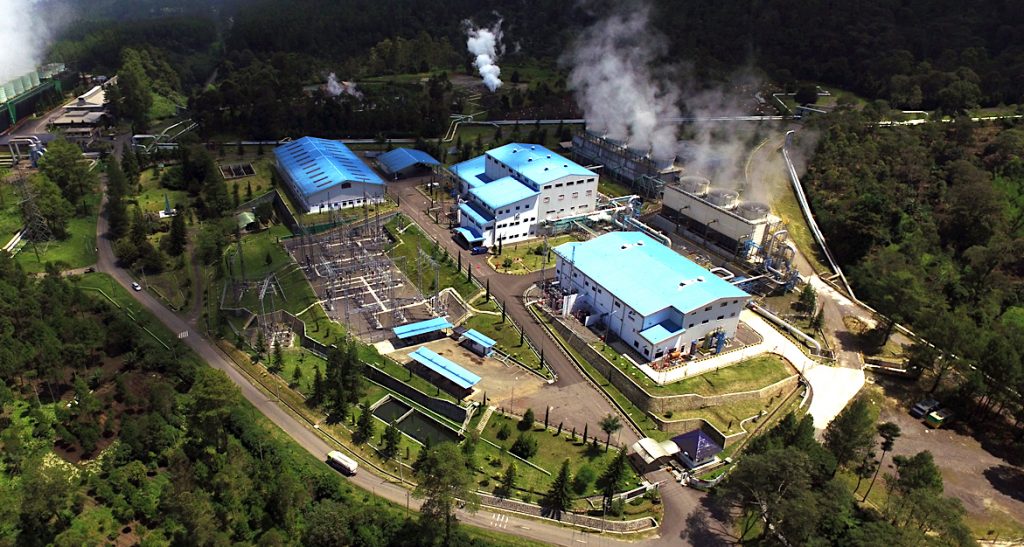
Realizing the potential of geothermal coffee
Before coming up with the innovative process, Deden had already been running a coffee business since 2015. With a café that was a popular gathering place for locals and PGE employees to relax and share stories, Deden began to establish a good relationship with the employees of PGE Kamojang Area. This closeness developed through casual conversations often filled with discussions about coffee, from the production process to the potential for developing local coffee.
These discussions eventually evolved into a concrete idea when PGEO expressed interest in starting a coffee development program, which Deden enthusiastically welcomed. “At that time, I considered the idea to be a challenge. I saw geothermal potential as an opportunity to provide solutions to various problems faced by conventional coffee producers,” he explained.
From concept to cup: Geothermal Coffee is born
Together with PGEO, Deden conducted intensive research to identify the fermentation techniques best suited to the geothermal characteristics used in coffee processing. “I conducted fermentation research for almost a year. From more than 20 processes we tried, we finally found three that best fit the characteristics of the drying process,” he said.
Following the research, Deden began producing coffee using Arabica beans grown in the highlands of Kamojang, at an altitude of around 1,500 meters above sea level. He then empowered local coffee entrepreneurs to build a more efficient business ecosystem through the use of ‘Geothermal Dry House’ technology, which utilizes geothermal steam from PGEO’s Kamojang operations as a substitute for sunlight. This allowed for a more stable, hygienic, and high-quality drying process.
From a business perspective, this technology excels by accelerating the drying time up to threefold. This translates lower operational costs and increased production capacity without additional time or expenses.
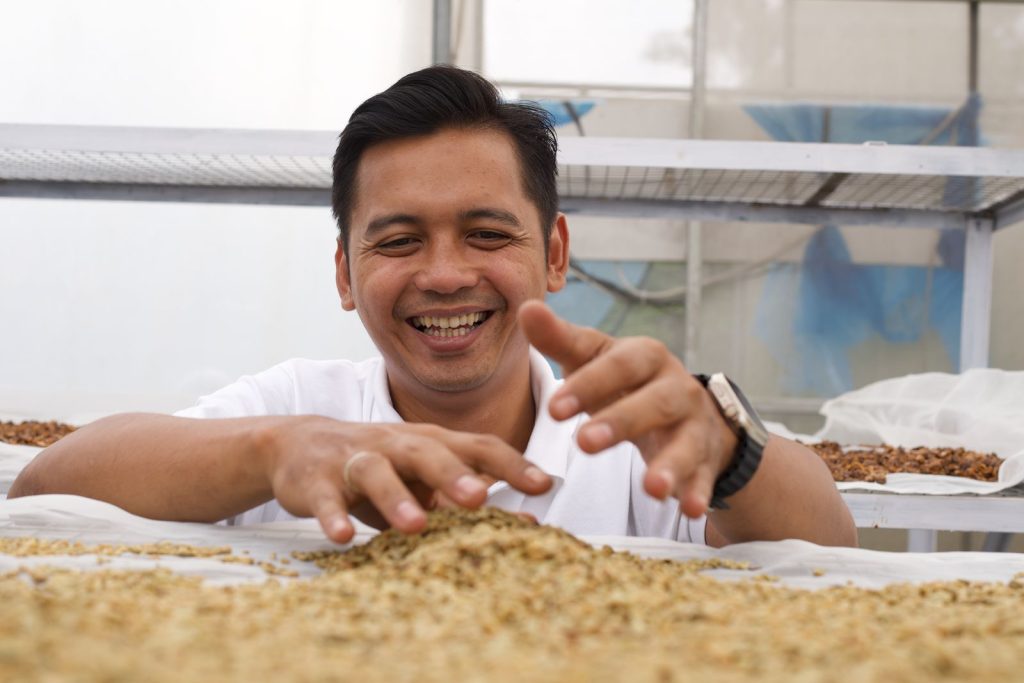
“This technology also minimizes the risk of bacterial contamination from outside sources. That way, the bacteria that affect the process only come from the fermentation before drying. In terms of taste, the end result is more fruity, with a stronger aroma, and a smoother texture compared to coffee processed conventionally,” he explained.
Deden currently manages Geothermal Coffee Process (GCP) as Managing aDirector, where he collaborates with PGEO to empower coffee farmers in Kamojang. GCP processes post-harvest coffee beans into green beans, partnering with over 80 farmers and absorbing 20 tons of coffee last season. Moving forward, Deden aims to develop GCP into an integrated business that delivers a broader social and economic impact for the community.
Taking Indonesian innovation global
In the first year of its launch, Deden mentioned that there were parties from abroad interested in replicating this system. “We felt it was important to patent it immediately. Rather than having this concept adopted by external parties first, it’s better for us to develop it domestically. We want the Indonesian people, especially in coffee-producing areas close to geothermal sources, to be the first to implement a similar concept,” Deden hoped.
This is what fueled Deden’s spirit to introduce geothermal coffee as an original Indonesian innovation to the global stage. His efforts paid off, as GCP succeeded in penetrating international markets with exports to Japan. This year, the company aims to expand exports to Europe.
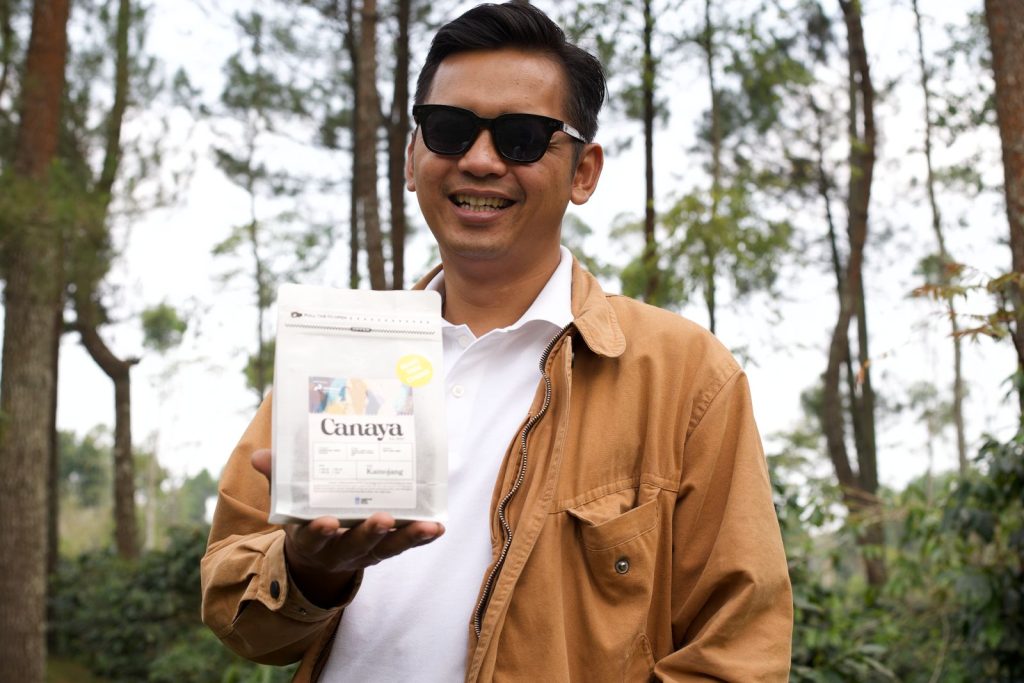
“From the beginning, my friends at PGE Kamojang have always believed in me and encouraged me to keep trying new things. This collaboration is not just about inventing the world’s first geothermal coffee, but also about opening doors for us, local entrepreneurs, to grow, learn, and dream bigger. We are increasingly experiencing the benefits of geothermal energy, not just as a source of electricity in our homes, but also as a door that opens up opportunities for a better life,” he concluded.
With a background as a vocational high school graduate in pharmacy, Deden is now exploring the opportunity to pursue a bachelor’s degree through a scholarship program from PGEO. He has chosen to major in business management, aiming to realize his dream of building a sustainable enterprise.
Source: Email correspondence






